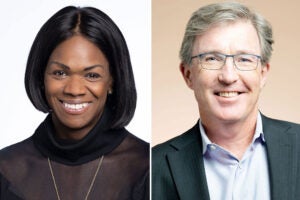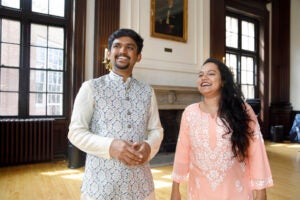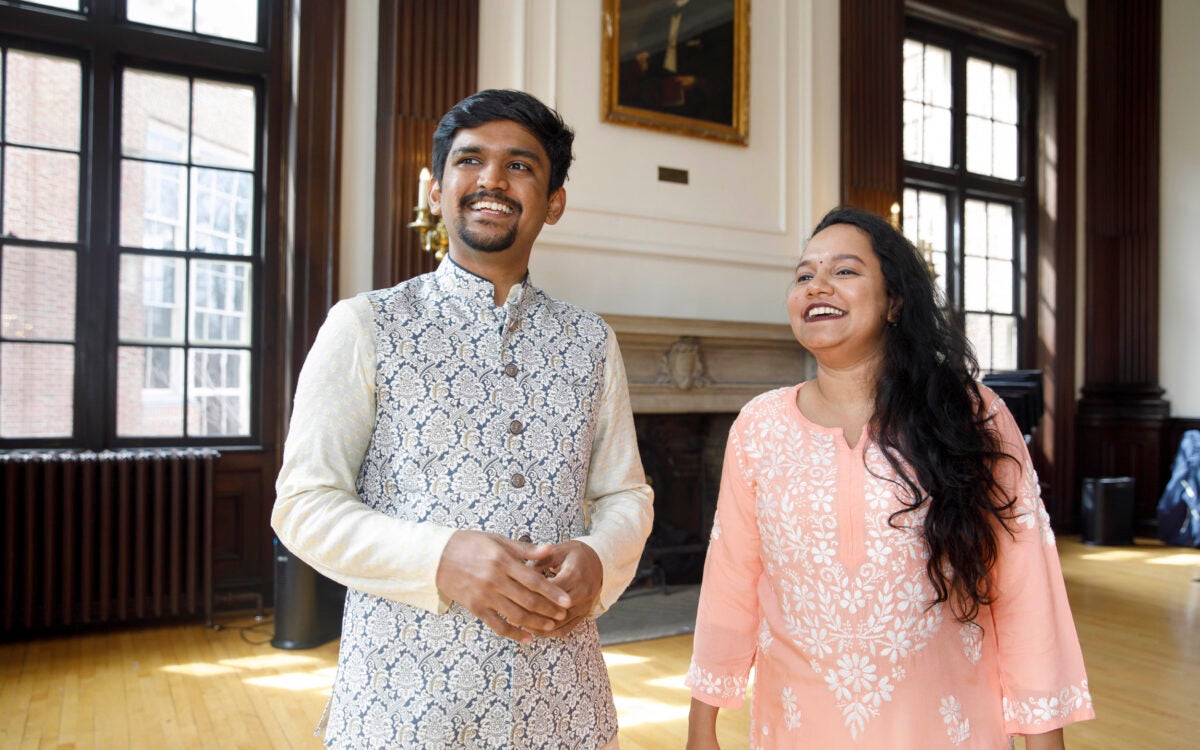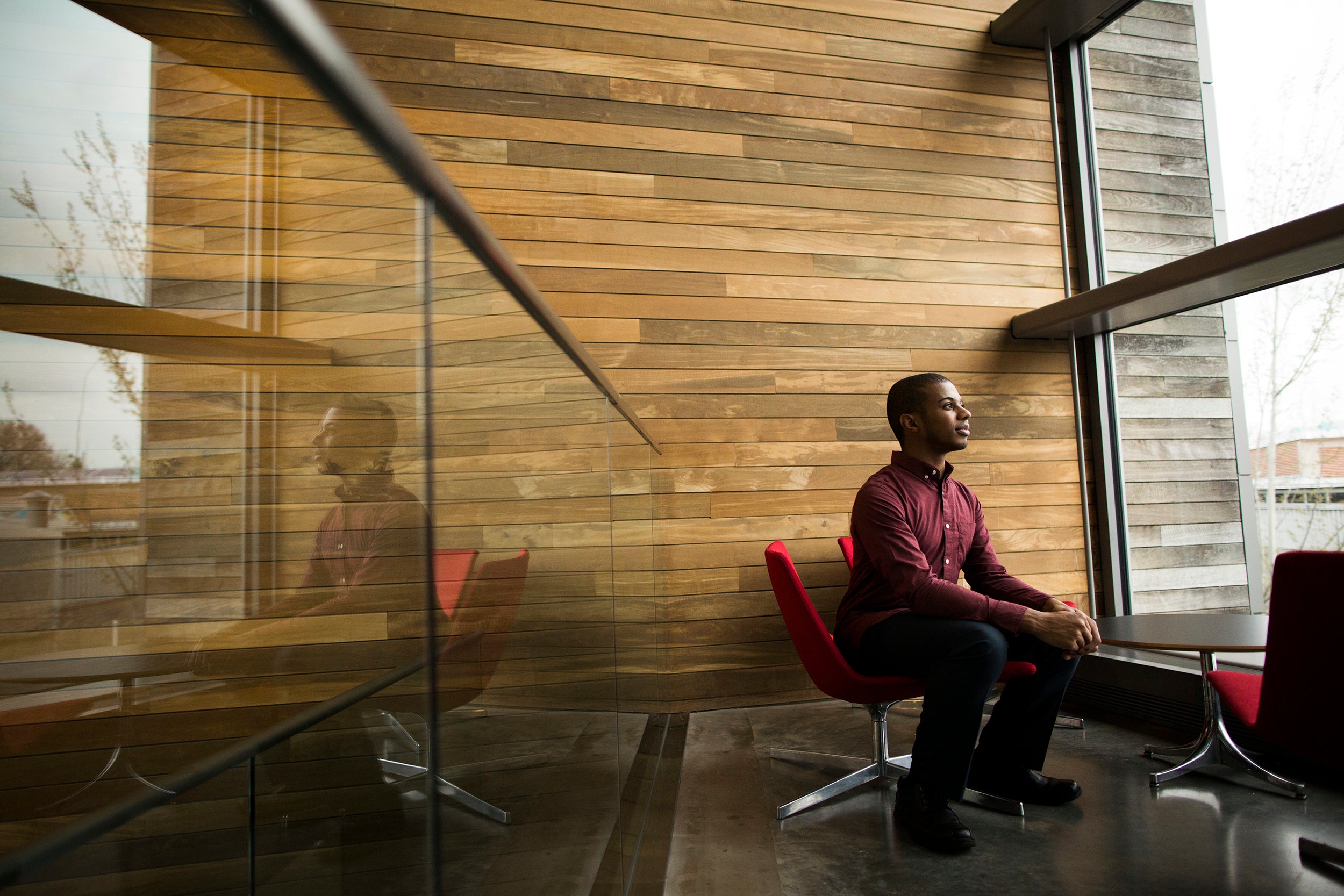
Paul Lewis ’18 is one of many Harvard undergrads who entered the Transcript Project, an initiative led by Dean Robin Kelsey to focus not just on grades, but “to recognize the curiosity-driven intellectual journey that college is meant to be.”
Stephanie Mitchell/Harvard Staff Photographer
How college rocked my world
Transcript Project gives students a chance to show that there’s more to Harvard than grades
With their poems, essays, videos, and photographs, students helped launch the Transcript Project this year, reflecting on their academic paths with submissions that matched the variety of their experiences.
Audrey Pettner ’21 of Fort Collins, Colo., focused on a first-semester seminar called “Money Matters,” which crossed disciplines in its examination of coins, while Amanda Flores ’18, an anthropology concentrator, submitted a poem with five stanzas, each written in a different language.
“It was a good reminder about what it means to be in college,” said Pettner. “These next four years are going to be influential, but there is more to be gained from this time than what it says on my grades.”
Pettner’s perspective reflects exactly why Robin Kelsey, Arts and Humanities dean and Shirley Carter Burden Professor of Photography, launched the project, inviting students to submit entries across three categories: read, hear, and see.
“Harvard is already very good at recognizing students who receive top grades,” Kelsey said. “But we should do more to recognize the curiosity-driven intellectual journey that college is meant to be. The Transcript Project is a way for our undergraduates to affirm whatever adventurous spirit informed their time here.”
Paul Lewis ’18 took a multimedia approach with his submission, sharing an essay, photos, and a video about the impact that global health courses, in particular “Case Studies in Global Health: Biosocial Perspectives,” had on his extracurricular life.
“It was taught by Paul Farmer, Arthur Kleinman, Anne Becker, and Salmaan Keshavjee,” said Lewis, a neurobiology concentrator. “It was an inspiration, and I got to work with Professor Kleinman to restructure an organization I had started here to make sure the work I was doing was really centered and making an impact. The following year, I hosted our first Global Health Conference.”
The Eliot House resident said the course led him to more global health courses, which, in turn, prompted him to plan a gap year in Japan upon graduation.
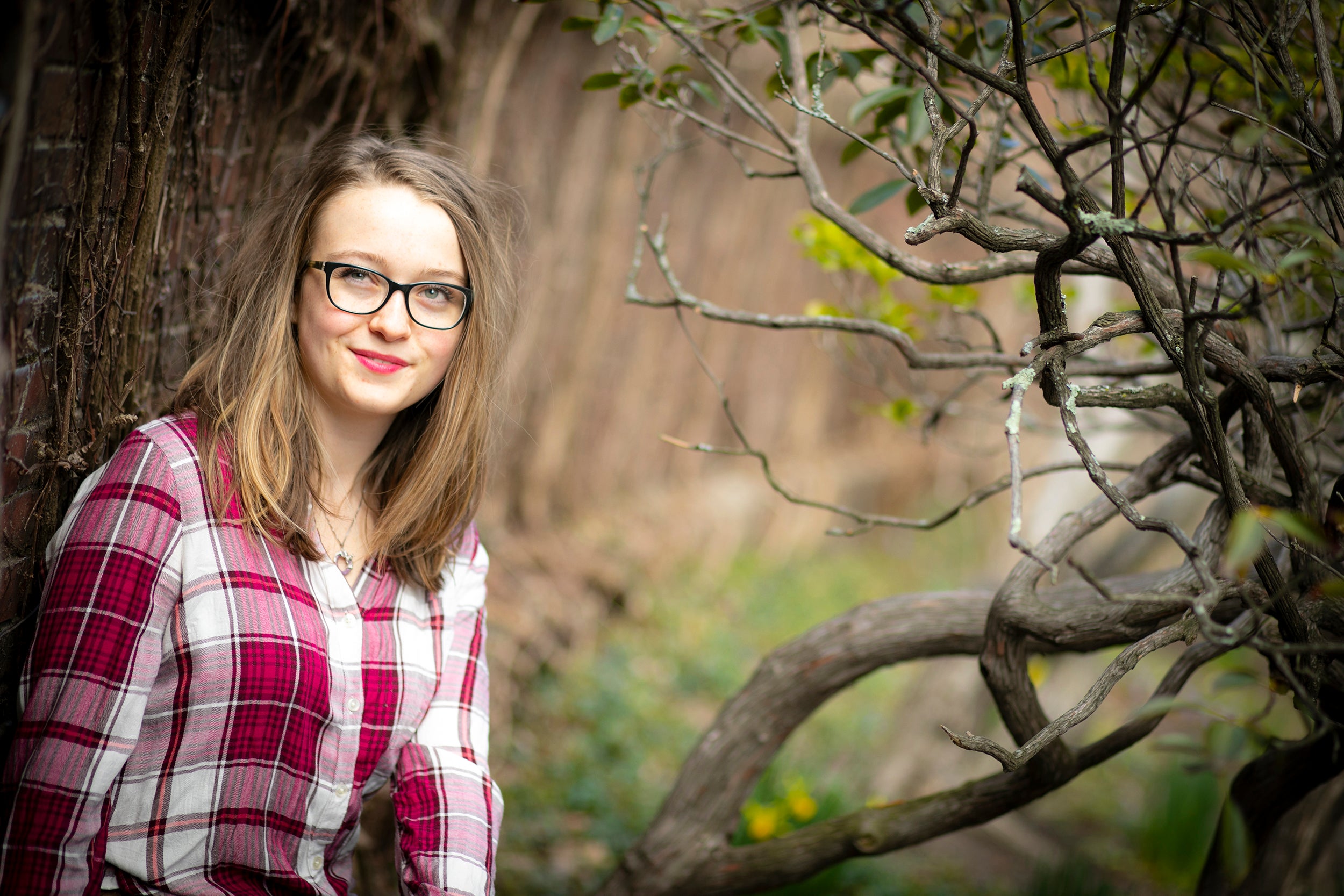
“These next four years are going to be influential,” said Audrey Pettner ’21, “but there is more to be gained from this time than what it says on my grades.”
Rose Lincoln/Harvard Staff Photographer
“I’m going to study end-of-life care,” he said. “All of the passion for understanding different cultures also stemmed from those classes. Knowledge for the purpose of knowledge can be nice, but it can have added benefits when it’s paired with out-of-classroom experience.”
Kelsey convened a jury made up of Jonathan Walton, Plummer Professor of Christian Morals and Pusey Minister in Memorial Church; Elaine Scarry, Walter M. Cabot Professor of Aesthetics and General Theory of Value; Sarah Lewis, assistant professor of history of art and architecture and African and African American Studies; and Karthik Pandian, assistant professor of Visual and Environmental Studies.
Pandian, who is completing his first year teaching at Harvard, said that submissions for the project brought to light “more narratives that might not necessarily otherwise receive attention.”
“As a visual artist myself, the form of the submission seemed to be the most interesting lens through which to review the entries,” he said. “I was moved by Sarah Perlmutter ’19, who sent in photographs. Our lives are saturated with images, and it can be a difficult terrain to make something that distinguishes your vision in that field. She was really honoring what photography can achieve on its own terms.”
In broader terms, he commended the students for honoring what the study of studio art calls “double movement,” or the process itself and the reflection.
“Students feel they can take informed risks, but they also step back and can articulate what they and their peers are doing,” he said. “It’s in that double movement that a lot of learning happens. I think the students are entering a world where there is so much crossover. It’s great to see the faculty and our institution can embrace that cross-disciplinary interaction or exchange.”
Flores, Lewis, Perlmutter, and Pettner were recognized along with the two other winners in the inaugural Transcript Project, Alana Davitt ’19 and Michelle Ko ’19, in a ceremony Tuesday in the Thompson Room.

